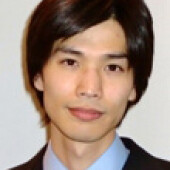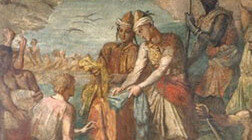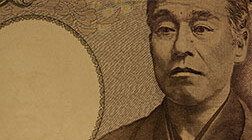There has been a heated debate whether multiculturalism "has utterly failed" in Europe, as the German Chancellor Angela Merkel famously said in October 2010. Whatever the truth of the matter may be, the fate of multiculturalism as a political project does not entirely determine the future of multicultural society as a reality. The adjective "multicultural" describes the relevant features of society marked by diversity and group difference. The noun derivative indicates one possible set of normative responses to them; it aims to provide some level of public recognition and support for cultural minorities to maintain and express their distinct identities and practices.1 As the debate over multiculturalism continues, the societies to which the adjective is applied change in complex ways, as I could glimpse during my trip to Belgium in summer 2013.
I was on my way to an academic conference in Antwerp. I arrived in a nearby city a few days earlier to see the country I had never visited before. Alas, I had caught a bad cold during my travel and could not even have breakfast in a lovely hotel where I was staying. At 11 AM I finally crawled out from my room and dragged myself to a nearest restaurant to eat something. It was a small Nepalese restaurant. I ordered a soup and salad and sat by myself, wondering if I would recover before the beginning of the conference.
It was before lunchtime and the restaurant was empty. The only other person present, who turned out to be a chef and the owner of the restaurant, came to talk to me. He asked me usual, innocent questions: where I was from, what I was there for, whether it was my first time to visit the country, and so on. A Nepalese immigrant in Belgium, he struggled to articulate English sentences; a sick man with serious sore throat, I struggled to say anything at all. But I could easily see that he quickly—perhaps a little too quickly—got a vaguely positive impression of me, as he started talking about difficulties in living in Belgium as a member of a minority group. This is one of the advantages of being Asian in Europe. Surrounded by the European majority, Asians can easily build the kind of trust and solidarity that we hardly ever develop while we live in Asia.
I asked him whether he knew everyone in the Nepalese community in the neighbourhood. "Of course!" he said. "We are like a big family. We celebrate together when somebody gets married, for example. All of us! We are not like those white people, you know." He continued to say a few uncharitable things about "white people," complaining about (to use the words he did not use) their alleged materialism and excessive individualism. Intrigued, I asked him if the Nepalese population mingled with the white majority. "No," he sighed. "We don't interact with them because they don't think we are the same as they." He then fell silent. So I ate the rest of my soup and salad, wondering if he meant to say that the "white people" did not regard Nepalese-Belgians as the same citizens, or as the same human beings, or both.
A few days later, I felt sufficiently well to attend the conference at the University of Antwerp. It was about Hannah Arendt and we talked a good deal about the vice of anti-Semitism and racism, and about the changing nature of citizenship and nationality. Everyone at the conference was of course against racism, as have been practically all "white people" I have met in my life. But then why is the sentiment so pervasive among ethnic minorities everywhere in Europe that the majority, "they", do not see or treat the minority "us" as equals—as equal citizens, and even as equal human beings?
After the conference, I had a chance to ask some of the local "white people" about minority groups in general and the Nepalese community in particular. They were academics; they gave me a well-informed overview of recent demographic trends in Belgium. I mentioned the little conversation I had at the restaurant and asked if my fellow academics knew any Nepalese-Belgian people. They did not, humorously adding, "Well, it's true we don't really have a chance to meet them, but it's embarrassing we have that reputation [of materialism and individualism]!"
Perhaps this is all that there is: lack of interaction between minority and majority groups, inevitably resulting in some misunderstanding and stereotyping. But I am inclined to think that there is more to the persistence and prevalence of communal tensions in Europe and elsewhere typically tied to the problem of race. It appears that the underlying issue is hypocrisy: most of us today, no matter what skin colour one happens to have, claim to be against racism and are indeed anti-racists so long as we do not see strangers from abroad in our own neighbourhood. The important question is this: How many of us will remain anti-racists when the landscape of our neighbourhood begins to noticeably change as a result of the international and domestic movement of peoples? Minorities suspect, for good reason, that the answer is not reassuring.
At the Nepalese restaurant, I finished my soup and salad and was thinking whether I should stroll down the neighbourhood or go straight back to my hotel to rest. Then, a middle-aged woman and a handsome young man entered the restaurant. On seeing them, the owner introduced me to his wife and son. They said something to each other and kindly brought me a cup of tea, the son saying in fluent English, "Just a minute, I'll get you some lemon. It'd be good for your throat." He and I then asked each other the same innocent questions his father had asked me about an hour ago: where we are from, what we do, etc. We talked about my hometown Tokyo, where his friend recently moved due to his marriage to a Japanese woman. We talked about the University of Antwerp, which I was going to visit in a few days, and where he graduated a year prior.
We kept chatting until I finished my tea. I paid and said thanks to their hospitality. "I hope you'll feel better tomorrow," the young man replied, "and enjoy your stay in Belgium!"
I do not recall if he said "Welcome to Belgium" during our conversation. If he did not, he could have. Unlike his father, he appeared to have little resentment to or skepticism of "white people" around him. Unlike his father, he showed no sign of estrangement or alienation. Besides, unlike his parents, he has no country except Belgium that he can call home. This did not seem to bother him. Or at least that was the impression I got; if it had bothered him, he would have been unable to say "Enjoy your stay in Belgium!" in the utterly uncynical way he said it.
How wonderful it was, I thought as I left the restaurant, that I could have a glimpse of the life of the kind Nepalese-Belgian family simply because we shared, or at least the father believed that we shared, some difficulties living as Asians in Europe! And how wonderful it would be if the young man, when he reaches his father's age, feels no such "Asian solidarity" because he is thoroughly at home in the Belgian city where he grew up! Should another Asian man with a bad cold come to the restaurant then, will he still offer a cup of lemon tea beyond the call of duty? Other things being equal, I bet he will, not because the visitor is his fellow Asian but because he is his fellow human being. If such a day arrives, it would be a good day for multicultural Europe. Whether it would be a good day for European multiculturalism is a separate question —a question for further debate.
NOTES
1 I adopted and slightly modified the definition provided by Will Kymlicka, Multicultural Odysseys: Navigating the New International Politics of Diversity (Oxford: Oxford University Press), p. 16.



